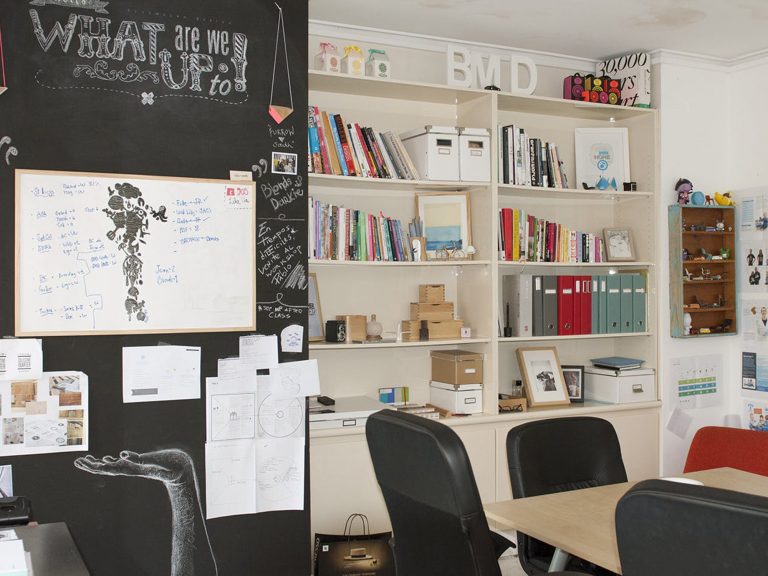What are all the different short term and shared space types?

For those looking at venturing out of their garage or kitchen table with their own business, the array of spaces available can be intimidating.
From big, small, vacant, furnished, shared, private, formal, or relaxed — the key is figuring out space is the right one for you.
Here’s our handy guide:
Retail
If you’re looking to sell your wares, there are a number of different options to choose from in retail:
Pop-up
On-trend and without the long-term financial commitment required to secure standard spaces, pop-ups have become a retail and event industry mainstay in recent years.
What is a pop up shop?
Pop-ups are usually vacant or underutilized retail spaces that are activated for short periods of time — sometimes only days or weeks — to provide an additional space for a larger retailer, to create buzz around a new brand or product, or for an owner who has surplus space or wants to generate some passive income.
Pop up store benefits
- Pop-up spaces generally require minimal setup and are fitted out quickly as required and can be seasonally themed.
- You can build stronger relationships with your customers as they can enjoy more personal experience.
- The store itself can be a marketing tool that you can create and share content about on your social media channels.
- Create memorable brand experiences.

Retail spaces can include more than a standard shop
Pop up store cons
- They can be a lot of work to plan and create.
- It can take a while to find the right space.
- The costs can be high for an independent brand.
Market stalls
Local markets are as popular in Australia today as they were a century ago – here’s what you need to know:
What is a market stall?
Large local markets sell licenses for individual stallholders and operators to sell their wares in a defined space within the market’s zone.
Market stall leases can be offered on a permanent or casual basis, with shorter-term leases offering traders the chance to sell their wares without the higher overheads of other retail leases.
Market stall pros
- Markets are extremely popular with consumers, who tend to love the experience, variety, and interaction with the stallholders.
- They’re quick to set up and take down, compared to a traditional store.
- The licensing and administration is all taken care of.
Market stall cons
- Stallholders generally need to set up extremely early in the morning.
- You may be at the mercy of the weather, if the market is outside.
- It’s a physical job to set-up and take-down a stall each time.
Shop shares
What is a shop share?
A shop share arrangement offers smaller or fledgling designers and retailers a more cost-effective option to display and sell their products.
Pros of shop sharing
- Shop shares will house a number of similar operators under the one roof, each with their own space to display their wares so they attract customers interested in these things.
- It’s perfect for creatives or designers who are reluctant or unable to take on the financial burden of a lease themselves, or who don’t yet have the inventory to fill an entire retail space.
Cons of shop sharing
- You may need to compete on prices if you’re selling similar products to other sharers.
Creative
Studios
What is an artist studio?
Traditionally used by artists, designers, photographers and other creative operators as spaces in which to both produce and display their work, studios are often utilised on short-term arrangements.
Pros of artist studios
- They can also be used as other creative-type event spaces, including pop-up galleries and small theatres.
- Artists can be flexible with the amount of space they require and therefore pay for.
- Artists can benefit from working with likeminded people, which can often lead to forming strong community bonds.

Artist studios can create a lifelong community. Picture: Getty
Cons of artist studios
- Lack of privacy or private space
- The balance of personalities can have a big impact of the enjoyment, especially if they clash.
- Minimal ability to scale up at short notice if required.
Office
Whether leasing one or leasing many, offices have been a workplace staple for businesses and individuals for as long as anyone can remember. A more formal option in comparison to other space types, an office can be as simple as one room with minimal or shared amenities, to a multi-room layout with private kitchens and bathrooms.

Office spaces are just one of the types of space available for hire. Picture: Getty
Hot desks
What is a hot desk office?
The domain of the freelancer or roaming creative, hot desks provide users with a single workstation within a shared office environment.
Desk allocations are usually fluid and relaxed, meaning you’ll simply find an available desk, plug in and begin working, and users pay rates according to their requirements: daily, weekly, monthly or yearly.
Co-working
What is co-working?
Coworking is where numerous businesses pay to rent space alongside each other within the same office space.
This allows each business or individual to have their own desks and areas, with other amenities and facilities like kitchens, bathrooms, meeting rooms, and breakout spaces shared with the other tenants.
Many start-ups use co-working spaces as a way to situate themselves in a professional yet relaxed working environment while keeping costs down.
Serviced offices
What is a shared office?
Serviced offices are a way for businesses to lease individual or multiple offices without being responsible for the general maintenance and cleaning of those spaces.
The offices are operated by a facilities management company, which rents out the offices and is responsible for their upkeep. Serviced offices generally attract shorter-term lease agreements, offering more flexibility.
Event spaces
Need to host a one-off event or series of events but don’t have a venue? An event space is your best bet.
What is an event space?
Usually, vacant rooms or buildings of varying sizes, event spaces offer a blank canvas that can be fitted out according to a tenant’s specifications, based on the type and size of event to be held.
Meeting rooms
What is a meeting room?
Meeting spaces are rooms available for hire, generally on an hourly or daily basis. They’re often situated within existing office buildings or hotels.
Meeting rooms can be used for everything from small business meetings to conferences and trade shows and can include auxiliary services like catering and audio-visual equipment.







